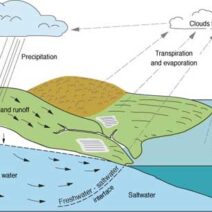As the world navigates the complexities of climate change, the role of fossil fuels continues to be a focal point of discussion. In 2025, despite various efforts and increasing awareness, fossil fuels still play a critical role in exacerbating global warming. This phenomenon is rooted in both physical processes and socio-economic factors that have proven difficult to alter. Let us delve deeper into how fossil fuels are perpetuating environmental degradation while unveiling the multifaceted reasons behind our ongoing reliance on these resources.
To begin, it is essential to understand what fossil fuels are and how they impact the climate. Fossil fuels—including coal, oil, and natural gas—are hydrocarbon-based energy sources formed from the remains of ancient organic matter. When combusted for energy, they release an array of greenhouse gases (GHGs), predominantly carbon dioxide (CO2) and methane (CH4). The accumulation of these gases in the atmosphere creates a greenhouse effect by trapping heat, leading to rising global temperatures. In 2025, atmospheric CO2 levels are projected to exceed 420 parts per million, significantly contributing to the warming of our planet.
One of the predominant sources of fossil fuel emissions is the energy sector. Despite the increased investment in renewable energy sources such as wind, solar, and hydroelectric power, fossil fuels still account for the majority of the world’s energy consumption. Their entrenched presence in our infrastructure, driven by historical precedent and economic interests, exemplifies the inertia of change. This reliance is particularly pronounced in developing nations, where access to alternative energy sources is often limited. Consequently, these regions continue to depend on fossil fuels to meet their burgeoning energy needs, perpetuating a cycle of environmental harm and social inequality.
Furthermore, the transportation sector remains heavily reliant on petroleum-based fuels. Cars, trucks, and aircraft predominantly run on gasoline or diesel, which release large quantities of carbon emissions. Despite efforts to promote electric vehicles (EVs), the transition has been slow. The production of EVs still involves carbon-intensive activities, such as battery manufacturing, creating a complex dynamic. The infrastructure necessary to support widespread EV adoption—like charging stations—often lacks sufficient investment. This systemic lag further emphasizes the longevity of fossil fuel dependence in our daily lives.
In addition, the unintended consequences of fossil fuel extraction emerge as a critical issue contributing to climate change. Techniques such as fracking and deep-water drilling can result in methane leaks, which are particularly pernicious GHGs. Although methane remains in the atmosphere for a shorter duration compared to CO2, it is significantly more effective at trapping heat. Lifespan concerns regarding these practices highlight the urgent need for comprehensive safeguards and regulations. However, the immediate profits obtained from fossil fuel operations often overshadow environmental concerns, perpetuating practices that compromise planetary health.
This intricate tapestry of fossil fuel reliance is further complicated by geopolitical factors and economic interests. Oil and gas reserves are not uniformly distributed around the world, often leading to tensions and conflicts over resource control. Countries rich in fossil fuels wield disproportionate power in global energy markets, affecting prices and availability. The inherent instability in fossil fuel markets can lead to fluctuations that hinder investments in alternative energy infrastructures, as governments and businesses are often reluctant to pivot away from a lucrative commodity, notably when economic stability is at stake.
Moreover, lobbying groups representing the fossil fuel industry exert a powerful influence on political processes, obstructing climate action. They promote narratives that downplay the urgency of climate change, portraying renewables as unreliable or impractical alternatives. Such disinformation campaigns can stall legislative efforts to implement more aggressive climate policies. This complicity at higher echelons makes the pathway to reducing fossil fuel reliance laden with challenges, as the financial ties between government and industry continue to undermine democratic processes.
Our societal attachment to fossil fuels is also steeped in habit and convenience. The modernization of societies over the last century has created a lifestyle heavily reliant on energy-intensive activities. From heating our homes to powering our devices, the smooth functionality of daily life is intertwined with fossil fuel use. The notion of “energy security,” which encompasses stable and affordable access to energy, has cultivated a defensive attitude towards fossil fuels, leading many to resist aggressive transitions to alternative sources due to perceived shortcomings in reliability.
Nonetheless, the scientific consensus on climate change and the detrimental effects of fossil fuel combustion cannot be ignored. With unprecedented climate events becoming commonplace, a growing faction of society demands change. Innovations in technology and a shift in public consciousness towards sustainability offer glimmers of hope. However, realigning our energy resources necessitates coordinated efforts at individual, corporate, and governmental levels. Understanding the underlying reasons for our fossil fuel dependence can help shape more robust strategies aimed at achieving genuine environmental sustainability.
As we navigate this intricate landscape, it is vital to address the paradox of fossil fuel reliance—while we are conscious of their damaging impacts, our socio-economic frameworks continue to support their consumption. The challenge ahead is formidable but not insurmountable. To devise effective strategies for combatting climate change, we must not only focus on technological advances but also re-examine the very foundations of our energy systems. As we build a more sustainable future, the lessons learned from our overreliance on fossil fuels can guide us towards a more resilient and environmentally friendly world.


